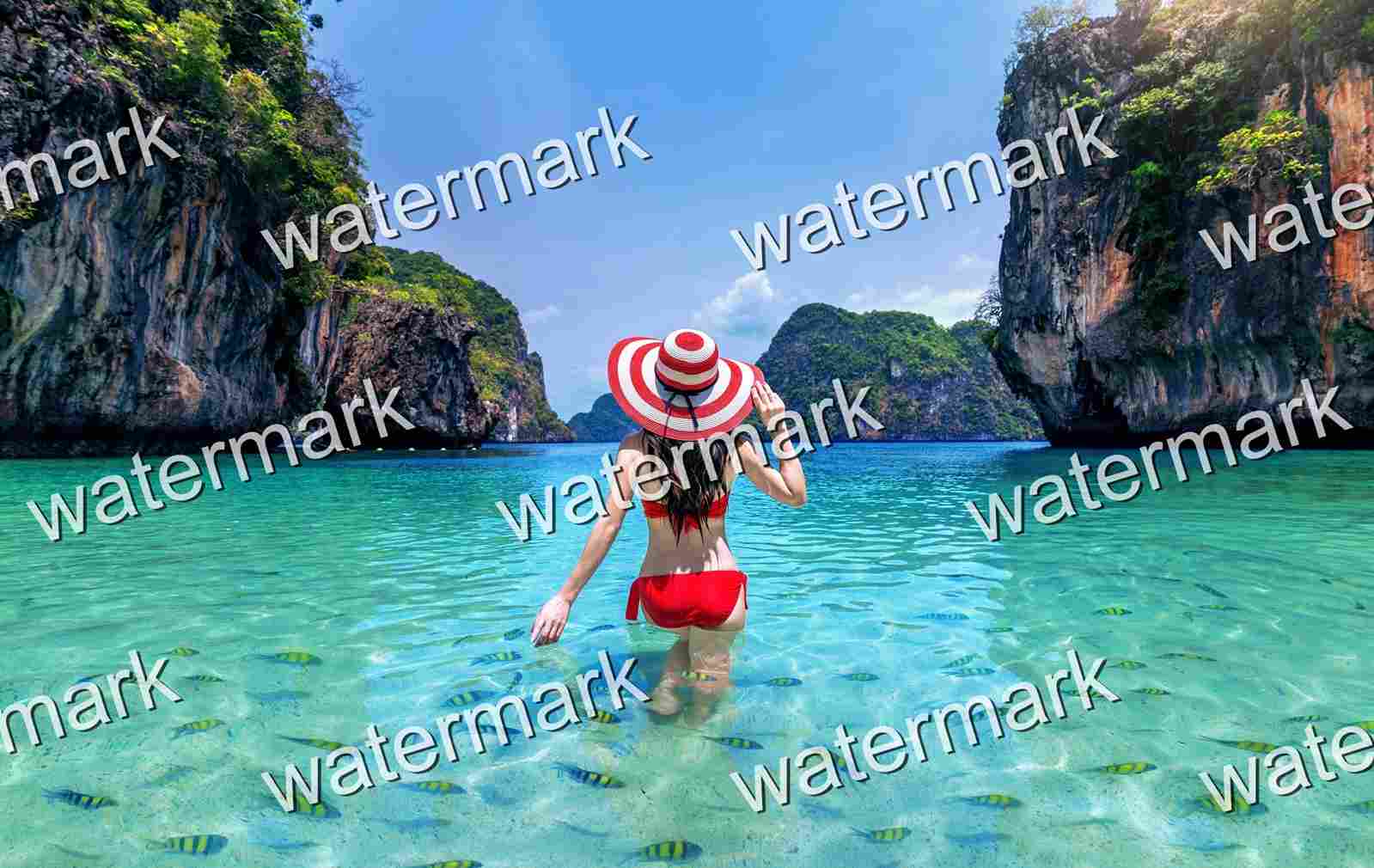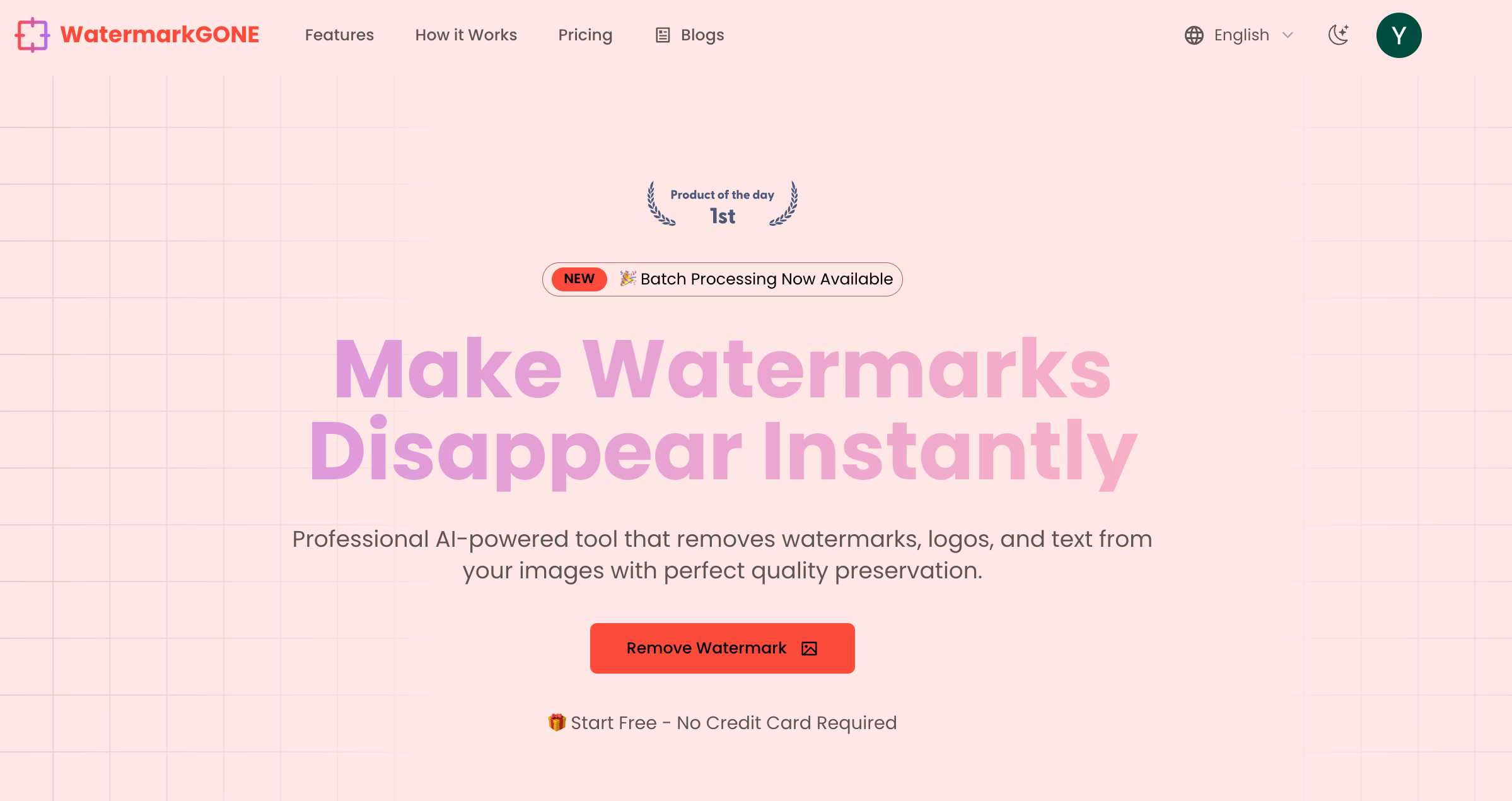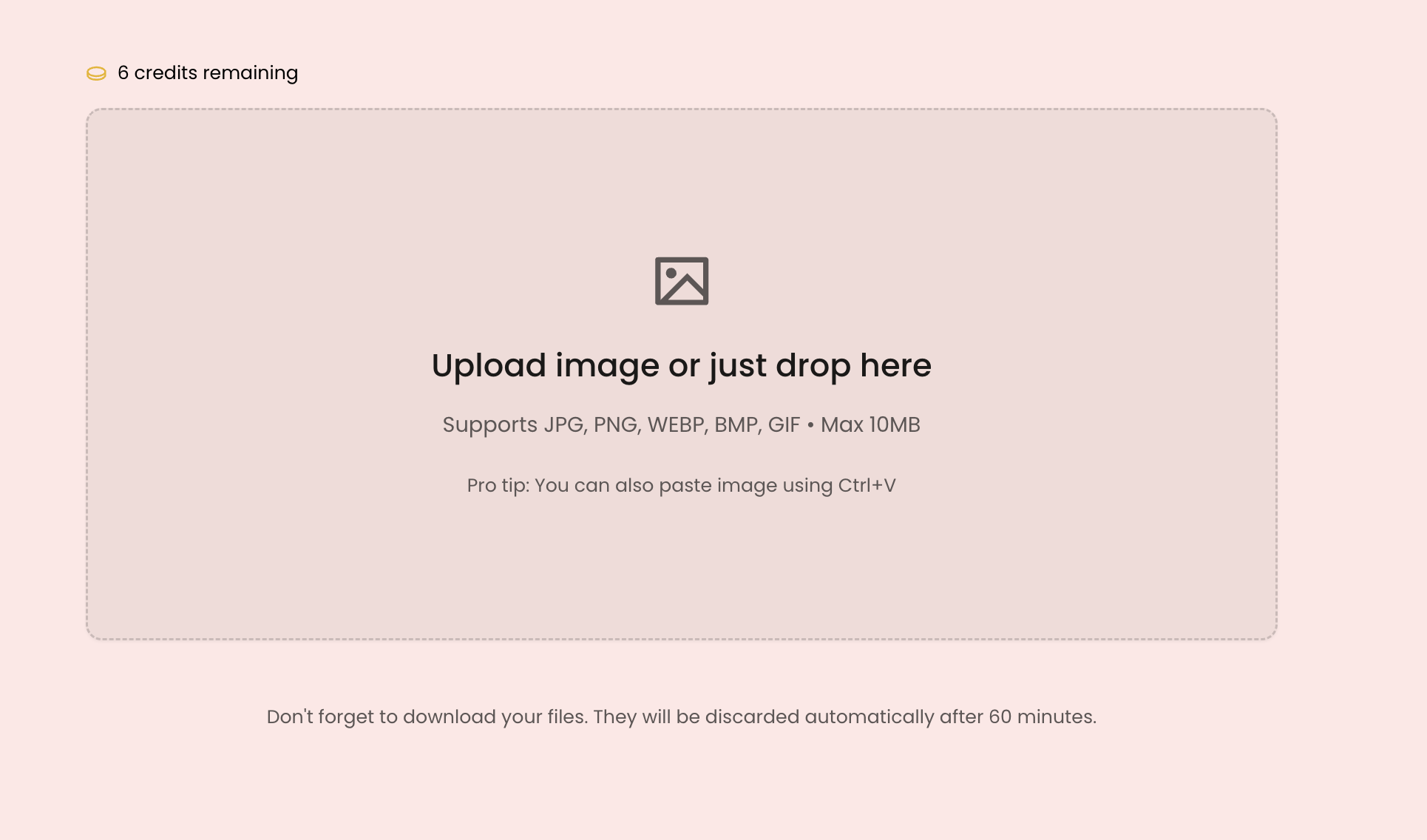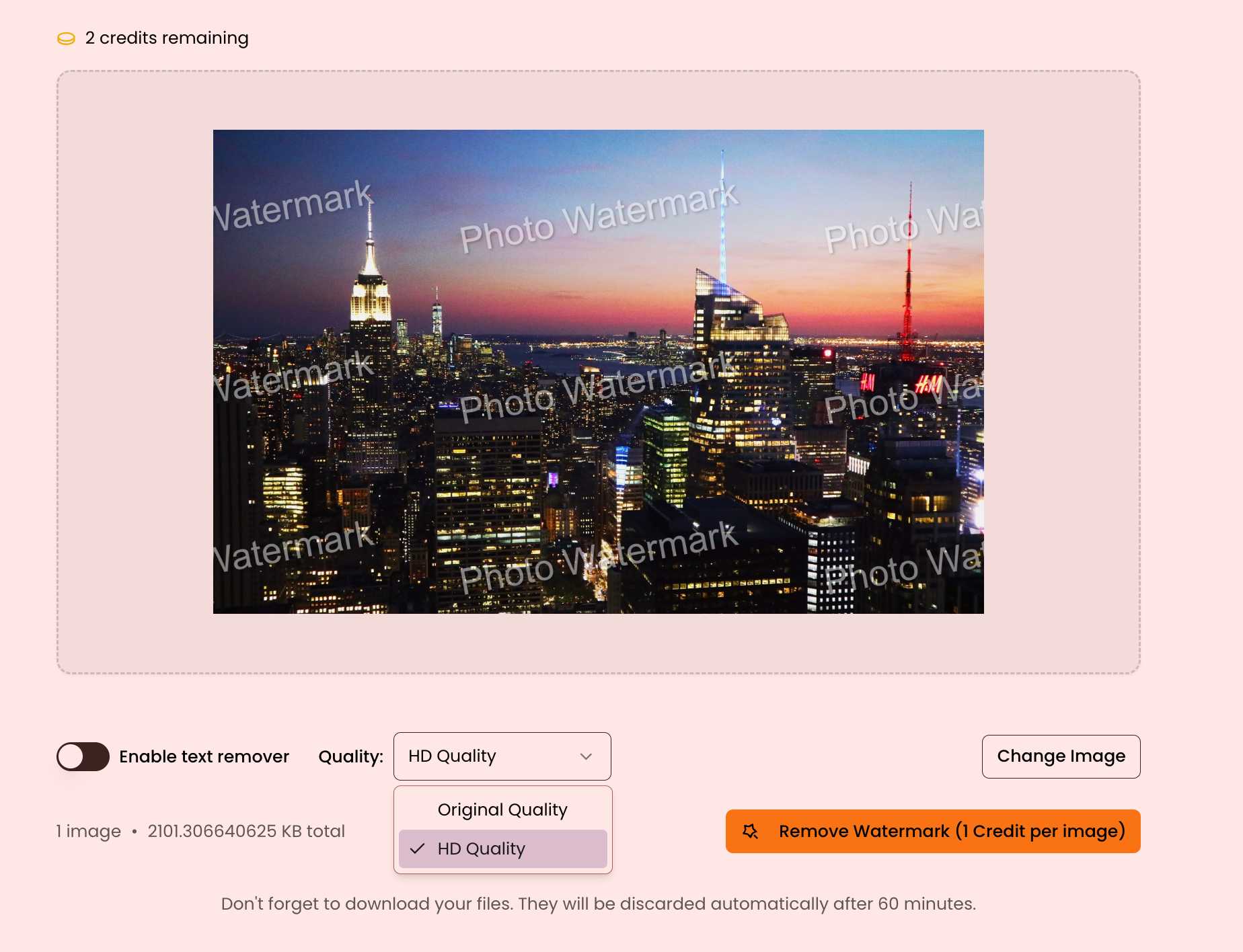Tips for Removing Watermarks from Getty Images

Watermarks on Getty Images can limit your ability to use visuals effectively. You may need to remove them for personal or professional projects. WatermarkGONE offers a seamless solution for how to remove tricky watermarks from visuals while maintaining image quality and security.
*However, always respect copyright laws and intellectual property rights. Removing watermarks from content you do not own or have not received permission to modify may violate legal protections. This guide is intended for educational and lawful use only. Tools mentioned, including WatermarkGONE, should not be used to infringe on the rights of content creators or copyright holders.
Key Takeaways
Watermarks show who owns an image. Follow copyright rules before removing them.
Try WatermarkGONE to erase watermarks. Its smart tools keep the image clear and neat.
Think about buying image rights instead of erasing watermarks. This helps creators and keeps you out of trouble.
Understanding Watermark Removal Tools

What are watermarks and their purpose?
Watermarks serve as a digital signature for images. They help identify the owner and protect the content from unauthorized use. The concept of watermarks dates back to the 13th century in Italy, where they were used to mark paper and prevent forgery. In the digital world, watermarks became popular in the early 1990s. They were first used to verify authenticity and ownership of digital content. Today, watermarks are essential for photographers, artists, and businesses to safeguard their work.
Challenges of removing watermarks from Getty Images
Removing watermarks from Getty Images can be tricky. Getty Images often uses complex watermarks that blend into the image. These watermarks may include semi-transparent text or logos, making them harder to erase without affecting the image quality. Additionally, the process requires advanced tools to ensure the final image looks natural. Many watermark removal tools struggle with maintaining the original details, especially in high-resolution images. This is why choosing the right tool is crucial for achieving professional results.
How to maintain image quality during watermark removal
Maintaining image quality during watermark removal requires precision. Advanced tools use metrics like FSIM (Feature Similarity Index) and SSIM (Structural Similarity Index) to measure how closely the edited image matches the original. Other metrics, such as MSE (Mean Squared Error) and PSNR (Peak Signal-to-Noise Ratio), help evaluate the visual impact of the changes. Using tools with these quality assurance features ensures your images remain sharp and vibrant. Always opt for software that prioritizes quality retention, especially when working with high-resolution images.
How to Remove Watermark from Getty Images with WatermarkGONE
Try WatermarkGONE for Free!
Get a High-Quality Picture in a Few Seconds
If you’re looking for a faster and more reliable way to remove watermarks from images online, WatermarkGONE is one of the best AI-powered online tools available. Follow these simple steps to erase watermarks from your photos while maintaining high quality.
Step 1: Visit the WatermarkGONE website
Go to WatermarkGONE.com, a fast and user-friendly online watermark remover. This web-based tool helps you delete watermarks from images in just a few clicks—no software needed.

Step 2: Upload your image
Click the upload area or drag and drop your file into the tool. WatermarkGONE supports all major image formats, including JPG, PNG, WEBP, and TIFF. You can upload a single image or take advantage of batch processing to remove watermarks from multiple images at once—perfect for photographers, marketers, and everyday users.

Step 3: Choose your removal settings
Select your preferred output: original image quality or HD quality for a sharper result.

Step 4: Let WatermarkGONE’s AI do the work
Once your image is uploaded, WatermarkGONE’s advanced AI watermark removal technology automatically detects and removes watermarks such as logos or text overlays. The tool is designed to preserve the original background and fine details of your photo.
Step 5: Preview the results
Click “Remove Watermark.” After a few seconds, the watermark will be erased. A before-and-after comparison will appear, letting you clearly see the difference before downloading.

Step 6: Download your watermark-free image
If you’re satisfied with the result, click Download to save the clean image to your device. WatermarkGONE supports both lossy and lossless formats:
Use JPG for smaller file sizes and online sharing.
Choose TIFF or other lossless formats to preserve full image quality with no degradation—even after multiple edits.
Performance metrics validate the tool’s accuracy:
Metric | Description | Implication |
|---|---|---|
RMSE_W | Root Mean Squared Error for watermark removal | Lower values indicate better watermark removal accuracy |
SSIM_W | Structural Similarity Index for watermark removal | Higher values indicate better preservation of image quality |
LPIPS_W | Learned Perceptual Image Patch Similarity for watermark removal | Higher values indicate better perceptual similarity to the original image |
RMSE_T | Root Mean Squared Error for semantic preservation | Lower values indicate better preservation of the original background |
SSIM_T | Structural Similarity Index for semantic preservation | Higher values indicate better retention of the original background |
LPIPS_T | Learned Perceptual Image Patch Similarity for semantic preservation | Lower values indicate better preservation of the original background's perceptual quality |
These metrics ensure that your image looks natural after you remove watermark elements.
Tips for Using Watermark Removal Tools Effectively
Selecting the right watermark remover for your needs
Choosing the best watermark remover depends on your specific requirements. If you work with high-resolution images, select software that supports formats like TIFF or 4K resolution. For bulk editing, look for a tool with batch processing capabilities. A powerful tool like WatermarkGONE offers these features, making it suitable for professionals and casual users alike. Always prioritize software with advanced AI technology to ensure precise results when removing watermarks. Reading user reviews and testing free plans can also help you make an informed decision.
Adjusting settings for precision and accuracy
Fine-tuning the settings of your watermark remover can significantly improve the outcome. Adjust parameters like opacity detection and edge blending to match the complexity of the watermark. Some software, including WatermarkGONE, uses AI to automate these adjustments, but manual tweaks can enhance precision. Experiment with different settings to find the perfect balance between removing watermarks and preserving image quality. Always preview the changes before saving to ensure the edits look natural and seamless.
Avoiding over-editing to maintain a natural look
Over-editing can make images appear unrealistic and reduce their authenticity. To avoid this, focus on subtle edits that enhance the image without altering its original essence. Studies show that maintaining authenticity in image editing builds trust and ensures accurate representation. Over-editing may mislead viewers and undermine credibility. High-quality images that retain their natural look also increase engagement and perceived value. Use a powerful tool like WatermarkGONE to achieve professional results while keeping edits minimal and realistic.
Conclusion
Using WatermarkGONE to remove watermarks is simple and effective. Upload your image, let the AI handle the watermark, and save the result without losing quality.
Always respect copyright laws and seek permission before removing watermarks. Licensing images is a great alternative that supports creators.
Choose tools like WatermarkGONE responsibly to maintain ethical standards while achieving professional results.
FAQ
How does WatermarkGONE compare to Photoshop for watermark removal?
WatermarkGONE simplifies watermark removal with its AI-powered features. Unlike Photoshop, this easy-to-use software requires no advanced skills, making it ideal for beginners and professionals.
Can I remove unwanted watermarks from multiple photos at once?
Yes, WatermarkGONE supports batch processing. You can upload multiple photos and remove watermarks simultaneously, saving time and ensuring consistent results across all images.
Is there a step-by-step guide for using WatermarkGONE?
Yes, WatermarkGONE provides a step-by-step guide. Upload your photo, let the software detect the watermark, and save your image without compromising quality.

